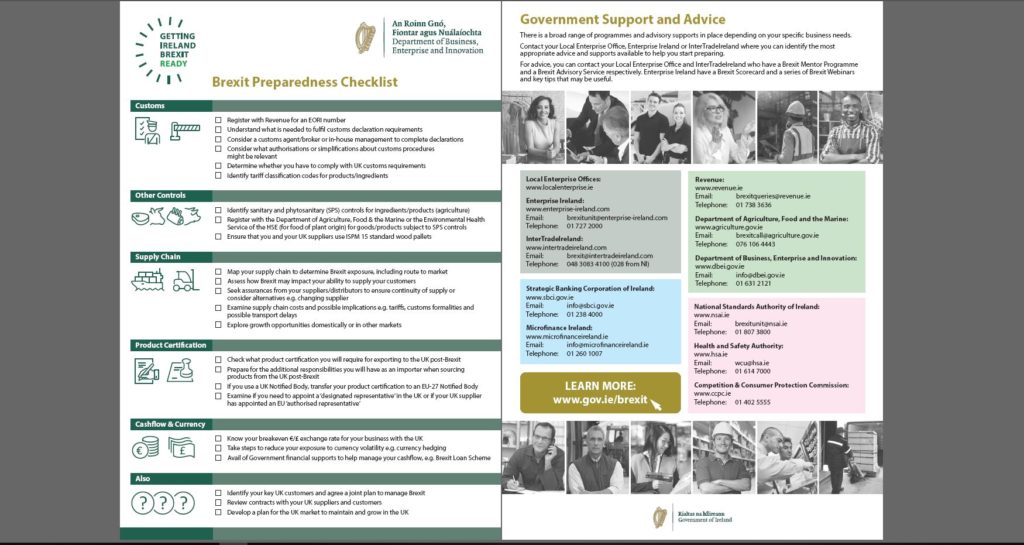Click Image To View Brexit Preparedness Checklist
Ireland Brexit Preparedness Checklist provided by the Department of Business, Enterprise and Innovation.
Key dates:
May 23-26th, 2019: European elections in 27 EU countries and possibly the UK take place.
June 20th-21st, 2019: EU leaders meet at European Council summit in Brussels to assess the progress made by Britain to reach an agreement on the UK’s exit from the EU.
June 30th, 2019: This is the date that May has previously said would be the latest date that the Brexit “Article 50” process can be delayed until.
July 2nd, 2019: New MEPs take their seats in a new session of the European Parliament.
August 25th-27th, 2019: May attends the G7 summit of world leaders in Biarritz, France.
September 22nd-25th, 2019: Labour Party holds its annual conference in Brighton
September 29th-October 2nd, 2019: Conservative Party holds its annual conference in Manchester
October 8th, 2019: The last practical polling date on which a British prime minister could hold a general election or second referendum before the next Brexit deadline.
October 17th-18th, 2019: EU leaders meet for the final European Council summit before the UK’s extension is due to expire.
October 31st, 2019: The six-month extension to the “Article 50” process expires
July 1st, 2020: Under the draft Brexit agreement, the UK and EU can, before this date, request an extension to the transition period "of up to one or two years to the transition period".
December 31st, 2020: If the EU and UK have agreed a Brexit treaty and agree a future trading relationship, this is the earliest date by which the transition period will end.
December 31st, 2022: the date the EU’s chief negotiator Michel Barnier has proposed extending the Brexit transition to in order to allow the EU and UK negotiate a trading deal. Under the withdrawal agreement this is the latest date on which the transition period can end. If it were extended until 2022 it would mean that the UK would stay within the single market and customs union for six and a half years after the Brexit vote.

